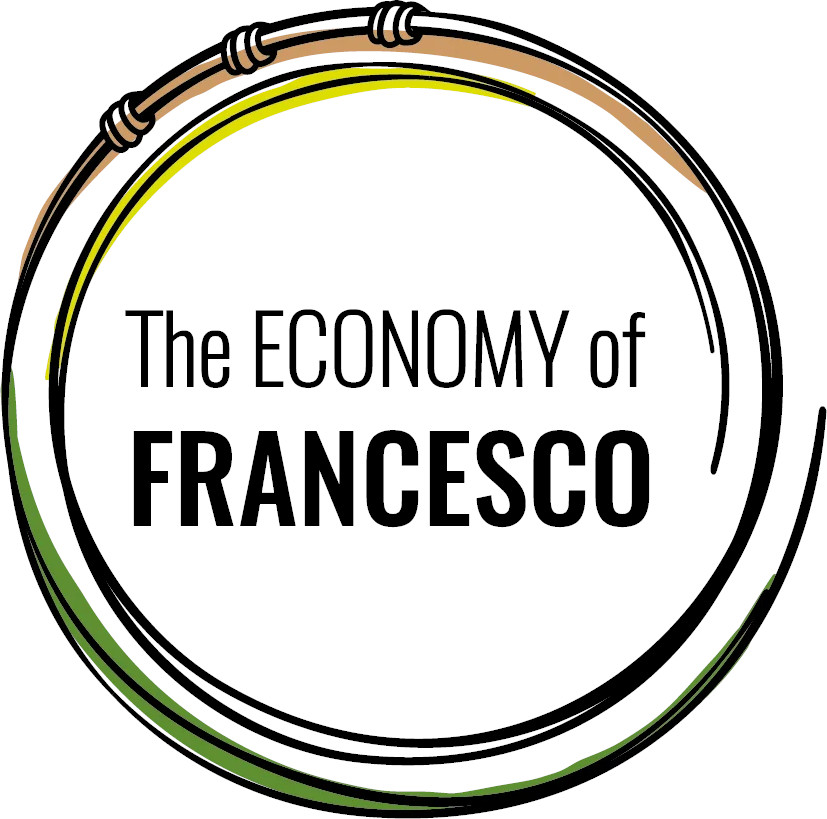
Who has been in charge of EoF Projects so far
Francis’ Economy: a global network of young people working for a better future
The ‘Francis Economy’ movement is mainly led by young participants from different parts of the world, including economists, entrepreneurs, activists and academics. They actively engage in the conception and implementation of concrete projects to promote a more just and sustainable economy.
The movement is not hierarchically structured and has no defined central leadership. Instead, it functions as a global network of people and groups who connect, share ideas and work together to implement projects that meet the movement’s principles and goals.
The projects developed by participants in the ‘Economy of Francis’ movement are diverse and cover a wide range of subject areas, including
Social entrepreneurial initiatives: movement participants create enterprises that combine economic objectives with positive social impact. These initiatives promote decent employment, social inclusion and environmental sustainability.
Research and awareness-raising projects: participants engage in studies and research to critically analyse the current economic system and propose sustainable alternatives. They also organise awareness-raising events to inform and involve others in building a fairer economy.
Training and education programmes: the movement promotes the training and education of young people on economic and social issues, encouraging critical reflection and the acquisition of skills necessary to promote a fairer and more sustainable economy.
Collaboration with institutions and organisations: participants work closely with institutions, non-governmental organisations and other civil society actors to promote concrete changes in the economy. They work with governments, companies and international organisations to influence economic policies and practices.
Pope Francis has asked the younger generation to take up these activities because he recognises their potential and energy in shaping a better future. As the bearers of new ideas, perspectives and desire for change, they are key to addressing the economic, social and environmental challenges of our time.
There are several reasons why Pope Francis made a specific appeal to the younger generation.
Hope in the future
Pope Francis has great hope in the new generations and their ability to create a more just and equitable world. He recognises that young people have a greater openness to change and are often driven by ideals of justice, solidarity and sustainability.
Critical view of the current system Pope Francis has often criticised the current economic system, characterised by inequality, exploitation and environmental crisis. New generations, being less tied to established power structures and paradigms, can challenge and transform these systems in ways more in keeping with human values and care for the environment.
Capacity for innovation
The younger generations are often more open to innovation, technology and the use of new tools to tackle social and economic problems. Pope Francis sees the creative energy and out-of-the-box thinking skills of young people as an opportunity to promote a more inclusive and sustainable economy.
Legacy for the future
Pope Francis emphasised that the choices and actions we make today will have a lasting impact on future generations. Therefore, involving young people in change-making activities and building a fairer economy means leaving a positive legacy for the future.
Furthermore, Pope Francis recognised the growing interest of young people in social, environmental and economic issues, highlighted by movements such as Fridays for Future and youth activism globally. By inviting young people to become actively involved, the Holy Father wishes to catalyse and support their engagement, offering an opportunity to put into practice the principles of fraternity, solidarity and care for the environment.
These are just a few examples of how the participants of the ‘Economy of Francis’ movement are working on concrete projects to promote a more just, sustainable and inclusive economy. The movement is open to all who share its principles and objectives, and anyone can actively contribute to the projects and initiatives promoted by the movement.
